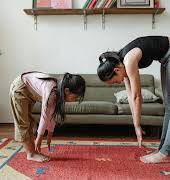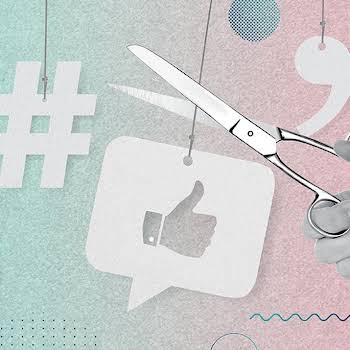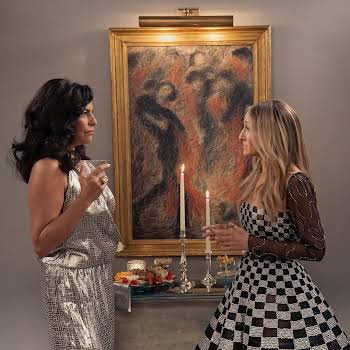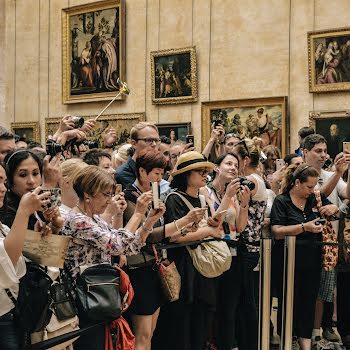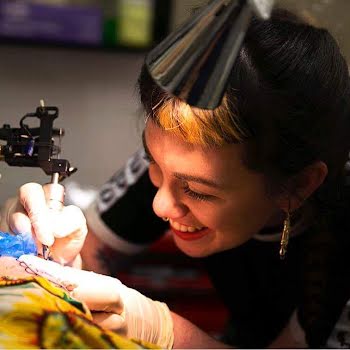
By Caroline Foran
26th Oct 2023
26th Oct 2023
How do I do the right thing on social media when it comes to the stuff that really matters and which I am only now (ashamedly) educating myself about?
Social media is, at the moment, a jarring place to spend your time. Amidst #GRWM outfit reels and DIY interiors and latte make-up before and afters, you’ll find devastating imagery depicting the very real humanitarian crisis happening in Gaza as well as what Hamas are carrying out in Israel. The imagery will stop you in your tracks; as it should. While protecting our own mental health to a certain degree – in that it might not be good for us, nor productive, to consume this imagery 24/7 – it’s important that we see what’s happening. Those affected do not have the luxury of turning away. But this is not a column about what’s happening in that part of the world; I have never been a journalist who does the very important and very experienced work of commenting on political issues, war or genocide. I am not well versed enough, nor well informed enough. I have not studied the history of these issues. I also struggle to understand them, but I am trying. And so on my social media, you won’t find a huge amount on this subject.
I have gone back and forth about how much I should be saying or am expected to say. Say nothing and you’re considered part of the problem. I remember rushing to post a black square image on my newsfeed during the height of the Black Lives Matter movement, believing this was the right thing to do, only then to learn actually, it wasn’t helping anyone; it was misinformed and we should never have been posting these squares in the first place. Quickly, they disappeared. Anyone who still had theirs up was considered tone-deaf. I felt really stupid, to be honest; I had done it – albeit with the best of intentions – because everyone else had done it. Because I wanted to be – and am – on the side of equality, fairness, and, frankly, humanity. For a brief moment in time, those who had a platform and weren’t posting a black square were assumed to be on the wrong side of history. Shortly after, it had been many of those who didn’t post who’d had it right all along. It was the perfect example of how messy things can get when it comes to important, real-world issues on a platform that is so often surface-level. It demonstrated how easily we can get caught up in what we want to appear to be posting, as opposed to what we want or believe needs to be said. It was a case of post first, think later, if you even think at all. It was a big lesson for me in realising how important it is to take a minute and understand what’s happening before sharing a slew of quotes or memes or images without thought just because I’m afraid of being told that my silence is deafening.
This time, with what started out as a complex and historical political issue, I was hesitant to start knee-jerk posting what I was seeing as it was happening in real-time. This time I didn’t just want to post because everyone else was posting. I watched videos, I read articles, I had conversations with others to try and understand what was happening. When I knew a bit more, and after the bombing of the hospital in Gaza, I expressed my sadness for the people of Palestine, who have been punished for the actions of Hamas. One DM thanked me for ‘breaking my silence’. Before I had posted anything further, another DM slammed me for failing to acknowledge the suffering of Israel. Herein lies the dangerous polarity to social media: just because I hadn’t yet spoken about Israel, does not mean I only cared about Palestine. I then shared some accounts for those looking to become more informed and said perhaps these are the people to follow. To my mind, something just doesn’t feel right about sharing an image of a dead body, followed shortly after by a review of a new mascara. I was recommending actions that I’d been advised would make a difference (writing a letter to your local TD for example) and sharing news journalists whose content is dedicated to this kind of coverage. Anyone I shared had been recommended to me countless times. I followed and shared one hugely popular account only to receive another DM telling me to seriously reconsider sharing because, in this person’s view, the account was antisemitic. Yet again I felt a bit stupid: how do I do the right thing on social media when it comes to the stuff that really matters and which I am only now (ashamedly) educating myself about?
Advertisement
I spoke to a friend and an incredibly accomplished journalist, Anne-Marie Tomchak. What she said really struck a chord so I want to share it here too. She said: “A culture has formed online where there is an expectation to have an opinion on just about everything. And that’s really misguided for a range of reasons. It can lead to people unwittingly spreading misinformation as they’re rushing to post and don’t fact-check or verify sources. It also gives a disproportionate platform to voices who have no knowledge or authority on a topic. They end up hogging the mic at the expense of genuinely credible sources of information. This supposed “pressure” to post is also problematic as it doesn’t leave room for critical thinking. It’s not an accurate reflection of how we learn and grow where we take the time to educate ourselves from a range of places.” Mike Sheridan, journalist and US political documentary maker said to me: “If someone sees something as a clear injustice, they can’t wrap their heads around others not seeing the exact same thing and not shouting about it. There’s a performative element to social media and it’s easy to lean into whatever will get you interactions; but the threat of spreading misinformation is real and dangerous – especially for those with large platforms.”
This is not a column I can wrap up in the neat way I usually try to do. My learnings on the relationship between social media and real-world issues are ongoing, as I’m sure it is for all of you.
For more of Caroline’s writing, find her on carolineforan.substack.com.









